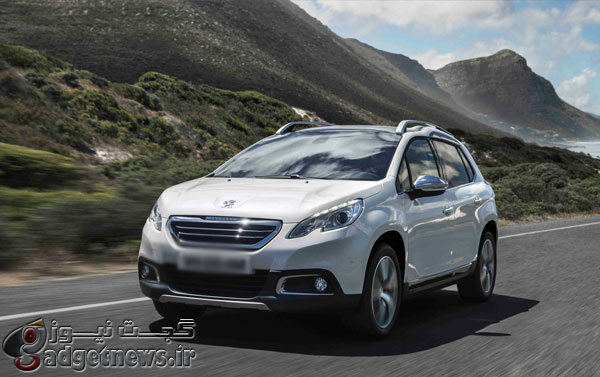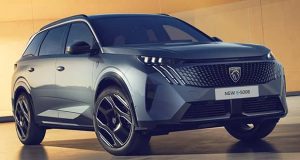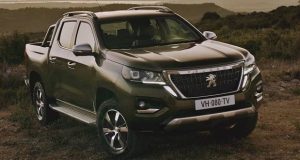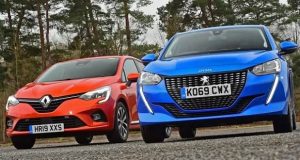
خودروسازان بدنبال تولید سوختی کاملا سازگار با محیط زیست هستند و به نظر میرسد که پژو در این زمینه از سایر رقبا پیشی گرفته است. نسل جدید خودروی هیبریدی شرکت پژو بر خلاف خودروهای برقی، به باتری نیاز نداشته و تنها با استفاده از هوا حرکت میکند.
خودروهای هیبریدی موجود از جمله خودروی پیروس (Pirus) شرکت تویوتا وابسته به باتریهای سنگین و گرانقیمت هستند که پس از استفاده، مشکلات زیستمحیطی نیز ایجاد میکنند؛ اما خودروی 2008Hybrid Air به باتری نیاز نداشته و تنها با کاهش سرعت یا ترمز کردن، انرژی مورد نیاز برای حرکت را تأمین میکند.
{photo}93/04/14/peugeot-2008-hybrid-air{/photo}
خودروهای Hybrid Air نسل جدیدی از خودروهای سبز و دوستدار محیط زیست است که عملکردی بهتر از خودروهای برقی دارد. این خودرو دارای موتور معمولی متصل به پمپ و موتور هوای هیدرولیک است؛ در زمان حرکت خودرو و با استفاده از انرژی مازاد موتور بنزین به همراه انرژی چرخها و گرمای تولید شده توسط ترمزها، هوا بداخل یک سیلندر پمپاژ میشود.
این هوا برای راندن موتور هیدرولیک مورد استفاده قرار گرفته و امکان حرکت خودرو با سوخت هوا، بنزین یا ترکیبی از هر دو را فراهم میکند. در هنگام رانندگی در شهر با سرعت کمتر از 70 کیلومتر در ساعت، سیستم استفاده از سوخت هوا بطور خودکار فعال میشود؛ میزان انتشار گازهای گلخانه ای در شرایط استفاده از سوخت هوا صفر است.
در شتاب بالای خودرو، ترکیبی از سوخت بنزین و هوا توصیه میشود و برای طی کردن مسافتهای طولانی، موتور بنزین بهترین حالت برای خودرو است. پیشبینی میشود که خودرو Hybrid Air از سال 2016 با قیمت 27000 دلار به بازار عرضه شود.
منابع : autoexpress | dailymail
We take the innovative Peugeot Hybrid Air prototype, a car which replaces batteries with compressed air, for a test drive around Paris
Verdict
With Hybrid Air technology PSA is addressing the biggest barrier to customers buying electric cars and plug-in hybrids – the cost. The simple but effective technology could be added to a wide variety of engines for a small price premium and boost economy significantly. The prototype we drove is far from perfect – it felt sluggish and the engine was too eager to kick in – but the theory behind it is sound. Let’s hope PSA can finesse the technology and bring it market as soon as possible.
r reviews
The Peugeot 2008 Hybrid Air prototype is the first fully-functioning showcase for PSA’s compressed air hybrid technology. It’s the French answer to BMW’s electric iCars, and Audi’s plug-in hybrid e-tron range, and makes a small crossover like the 2008 capable of an impressive 97.4mpg and 69g/km, without the need for a heavy and expensive battery pack.
Central to the HYbrid Air’s powertrain is a compressed air tank, entirely self contained, which can hold 20 litres of nitrogen and oil at a pressure of 220 bar. By discharging this tank and forcing the oil through a hydraulically actuated motor which spins the front wheels.
• Most economical cars
Why go to all that trouble? PSA ultimate target is to make a 2.0l/100km (141mpg) car a realistic and affordable showroom possibility, and reduce average CO2 emissions for its entire range to 116g/km by 2015 – and this Hybrid Air technology is seen as a crucial way to achieving that.
Our test drive took place right in the heart of Paris behind the wheel of a 2008, but whether the system makes it to production in this model or a Citroen C3 (the model in which the technology was first shown) is yet to be decided. Emerging into the French capital’s notoriously anarchic hustle and bustle, the automatic test mule crossover glides serenely in the zero emissions mode offered by air-only power. As per any hybrid car you’ve driven, the system works in purely electric mode until either the ‘charge’ (or in this case, air) is depleted, or when more acceleration is demanded.
The Hybrid Air system can operate in zero emissions air mode, petrol-engine-only mode, or petrol and air in combination. Driven carefully, it takes about 500 metres for the tech to exhaust itself around town, and the 81bhp 1.2-litre turbocharged three-cylinder petrol engine kicks in with a gruff low growl to help push things along. It’s a momentary boost, as fully recharging takes no more than ten seconds at city speeds, and despite the apparently short range the centre display still claimed 60 per cent of our journey was emissions free.
The recharging is done by a ‘hydronic’ pump that recirculates oil back into the main tank, not just when the petrol engine is on, but when you come off the throttle and hit the brakes, too. In that respect it’s similar to a battery hybrid’s regenerative braking system.
Threading the car down narrow Parisian streets and wide main roads exposes a few flaws though: It’s sluggish off the line compared to an EV hybrid, and there’s lack of power assistance to the steering, which feels heavy at lower speeds, although that’s something PSA’s engineers can work on recalibrating.
It’s also tricky to stay in zero emission mode as even small squeezes of the throttle cause the engine to fire up, a result of the longer gearing designed to keep emissions down. This 2008’s prototype status has to be taken into account, and the congested city streets meant we couldn’t use all of the claimed 121bhp and 200Nm of torque, but even so – boosting the performance is an area that needs improvement.
At the moment, comfort is the name of the game and the powertrain at its best when cruising. The ride was suitably refined, too, soaking up the Parisian cobbles and bumps with minimal fuss. It helps that the compressed air set-up is lighter than the equivalent battery-powered hybrid technology, and Peugeot-Citroen’s efficiency drive is backed up by a more environmentally-friendly manufacturing and recycling process.
On the road running costs obviously benefit as well, with a claimed 97.4mpg average whilst emitting just 69g/km. In comparison, a regular Peugeot 2008 1.2 automatic manages 65.7mpg and 99g/km.
Best of all though, engineers claim it’s cheaper to produce, and therefore hope to pass these savings on to customers. A production model is a few years away yet, but when it does arrive expect a similar price mark up over standard petrol models as for an automatic diesel variant. If it makes it’s way to the recently launched C4 Cactus then, prices could start from around £17,000.
At a glance
Price: from £17,000 (est)
Engine: 1.2-litre 3cyl turbo, plus hydraulic motor
Power/torque: 121bhp/200Nm
Transmission: Planetary gearbox, front-wheel drive
0-62mph: N/A
Top speed: N/A
Economy: 97.4mpg
CO2: 69g/km
On sale: 2017
 گجت نیوز آخرین اخبار گجتی و فناوری های روز دنیا
گجت نیوز آخرین اخبار گجتی و فناوری های روز دنیا 





